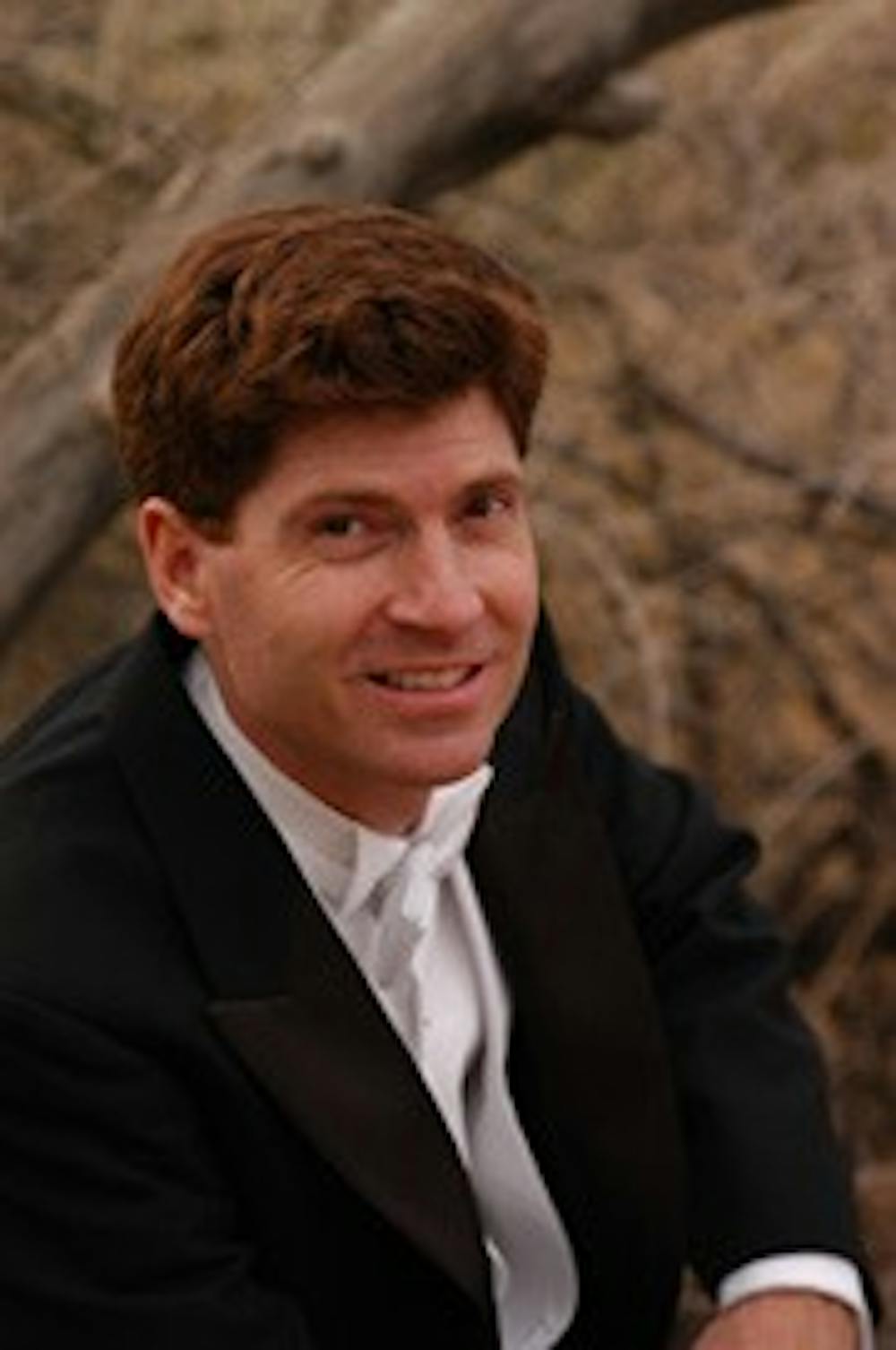 (Photo Courtesy of Dr. Andrew Campbell)
(Photo Courtesy of Dr. Andrew Campbell)The grace of the violin met the power of the piano this past Sunday.
Professor of violin Katherine McLin and associate professor of music Andrew Campbell came together once more for their 25th anniversary performance, in a show that featured the emotional and powerful sonatas and pieces of Charles Ives, Francois Dompierre and the legendary Beethoven. Such sets, written for the violin and piano, had Campbell on piano and McLin on violin.
When the duo first took the stage, they introduced the audience to "Sonata 2" by Charles Ives, describing parts of it as reminiscent as “this old ragtime stuff.” With a smile, McLin explained that the second movement, "In the Barn," told the tale of a fiddle player who may have had one too many to drink.
Their second piece, "Les Diableries" by Dompierre, told the stories of five demons, ranging from an upbeat gimpy demon, to one filled with anger. Botteux, the gimp, was played jovially; Campbell's upbeat keystrokes paired well with McLin's happy movements as she played the higher strings. The demon Amoreoux felt more solemn in contrast — the violin's music became slower as the piano became calmer, telling a beautiful and graceful love story with a hint of tragedy.
Watching the duo perform and play off each others' effectively was a sight itself. It makes sense, given their history both together and in music.
After pursuing their masters degrees at Indiana, the two musicians married, and they have been performing since then for the past 25 years. They've been married for 23. “It's wonderful to have a professional partnership that's also a successful personal partnership. Not every couple has that experience and it's worked great for us,” Campbell said.
One would be quick to think that the relationship has a hand in the duo's ability to sync well with each other on stage. Campbell says that while it's a big part that, a lot of practice takes place as well. “There's two aspects to that,” he said. “Some people feel music in a very similar way, and I think she and I feel music in a very similar way. ... We just had similar training, similar musical instincts that seems to gel.”
 (Photo Courtesy of Dr. Andrew Campbell)
(Photo Courtesy of Dr. Andrew Campbell)At the same time, however, Campbell says that there is a lot of hard work. “What we did on stage... I'm glad it looked like we were just tossing things back and forth, but a lot of it is just grunt work," he said. "There are hours of individual practice, hours of rehearsal, so that you're comfortable on stage to be spontaneous.”
Surprisingly, Campbell said that many things done during Sunday's performance were not rehearsed. “It doesn't throw us off because we know that each other is playing so well that we can anticipate those cues," he said. "But we know the music so well, and done so much rehearsal, that if someone veers in different direction ... it's not distracting.”
He admitted there was a bit of magic on stage, but did not want to overstate that. He emphasized the amount of rehearsal time utilized by the two, and the discussions on feeling different ways about a musical passage.
“My perspective on music is that it's always changing. I'm gonna play it again with her two, three, five years from now, so I tend to be very flexible try different things — as does she. Just because we know it's nothing set in stone.
“Even if I feel really strongly about a (passage), it's great to try something new. It's like a new food or new flavor of ice cream.”
At the concert, the final piece was Beethoven's famous "Violin Sonata No. 9," also known as the “Kreutzer Sonata." On stage, Campbell provided some history on the piece, stating that the original dedication on the sonata was to a man named George Bridgetower. However, after making a poor remark against a woman Beethoven was interested in, he lost the dedication to Rodolphe Kreutzer, a violinist. Kreutzer, however, never performed the piece, calling it “unintelligible.”
The emotion on display was never held back. Campbell's facial expressions marked his powerful play, while McLin's ferocity on the violin was strong. Campbell says that those expressions are not an act, but are a part of the show in order to portray those emotions back to the audience. “For the most part, the emotion that is touching me while I'm playing just naturally shows up on my face, and the audience can respond to that.
“We live in a world that classical music is not the most popular art form, and our audiences that are non-classical musicians ... if we want to engage them, we have to make it visually appealing.”
The concert ended with a standing ovation for the duo, a mark of the experience had by the audience that evening. Dr. Campbell says that he looks for the emotional response from those that hear the concerts.
 (Photo Courtesy of Dr. Andrew Campbell)
(Photo Courtesy of Dr. Andrew Campbell)“When someone comes back and says, 'Oh, that was so exciting,' or, 'That piece was so beautiful; it really moved me,' that's fantastic. And I think that's why we do any art form, is to get an emotional reaction.
“That's why we do things on stage than we do differently in the practice room. Tempos, timings — never done those things before," Campbell said.
Reach the reporter at djulienr@gmail.com or follow him on Twitter @legendpenguin
Like The State Press on Facebook and follow @statepress on Twitter.




